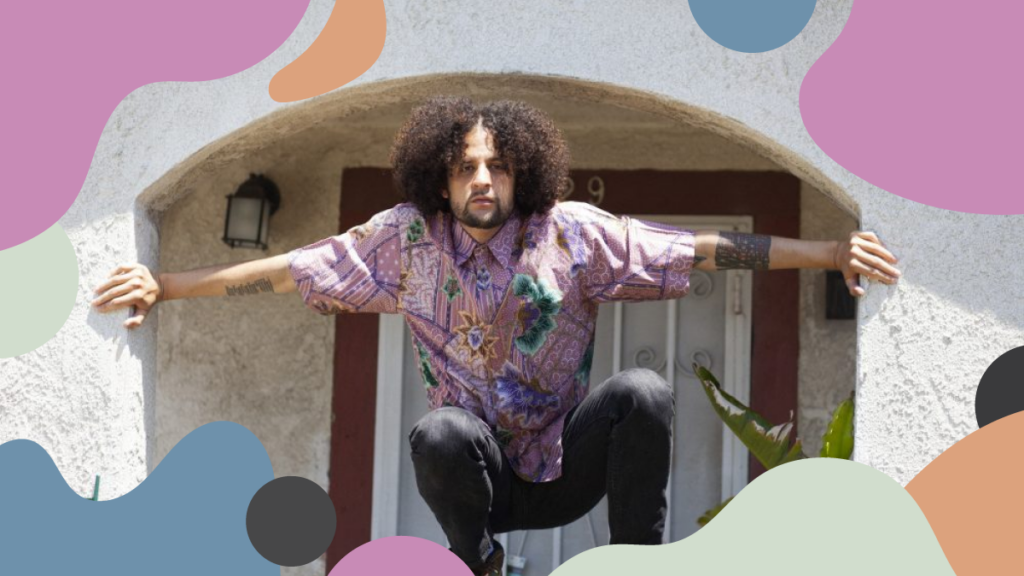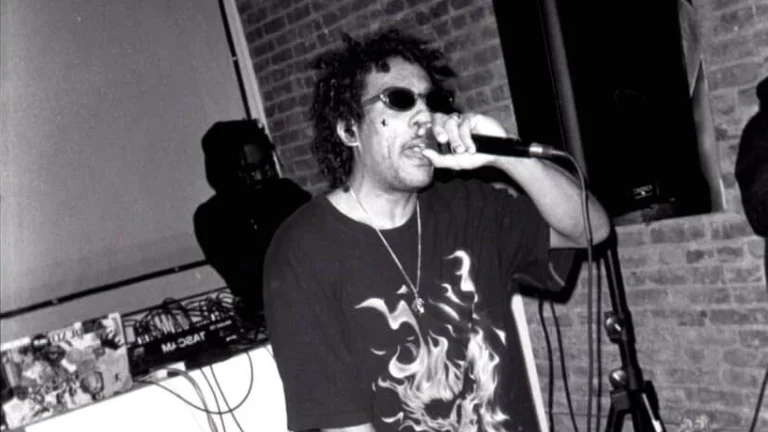One of the most prominent questions that was asked months ago in the Weird Rap Facebook group is “what is rap?” The answer that popped up the most is “rhythm and poetry.” It is a genre that is meant to be like spoken word put to a beat or performed like there is a built in rhythm to go with the performance. Now that we have that out of the way, how would one define art-rap, besides a term that Open Mike Eagle came up with?
The way I see it, art-rap is a response towards those who, for some strange reason, doesn’t see an artistic merit in hip hop or doesn’t really see it as music (y’know, the same way people didn’t see rock n’ roll as anything but noise?). Art is known to be sophisticated, and is made to be revered, studied, reacted to. Art is art, and the point is for it to be a snapshot of a certain moment created by the hands of less wealthy people. So, if art-rap is meant to do anything, it is to 1) restore and demonstrate its artistic merit, even if such tasks may acknowledge the pretense of those who thought there was none to begin with and 2) expand the artistic possibilities that hip-hop should already have. Everyone from the frantic art-rapper Busdriver to avant-rap’s most radical poet R.A.P. Ferreira to abstract rap’s most popular participant Aesop Rock shaped hip-hop in ways that free itself from ideas of what the mainstream thinks it should be, and endlessly molds it into what it could be. Another rapper that does this is the ever-versatile Rhys Langston.
The charm of Rhys Langston is his constant employment of both the wider English language and a wide range of references, some being of a historical kind (for example, take a listen to the chorus of “In the Suburbs of Babylon”), while maintaining a confidence and swagger of rappers like, say, Q-Tip or Palaceer Lazzaro. This continues on his latest outing Grapefruit Radio. The opener itself “Obscenely Poetic” finds Langston positioning himself as the “kamer-yunker”, which is essentially a rank of position inspired by the German military, and uses the song to both paint pictures of an oppressively changing world around him (“walking around Los Angeles with Japanese syllables and nary a transplant is an organ donor/keepsakes in so far as trampling begonias in Chelsea boots and redressed malfeasance is wont to”) while lamenting the disrespect and overall whitewashing upon the artform of poetry in the age of the Internet (“poetry is cancelled as a dead fad/literally a run-off elective as digital recall takes trains of thought to a time after brown bound hands drove spikes in red clay”). While finishing the line, you will have to look up “Caryl Chessman” to understand the sting of such lament for the artform, and Rhys’ own passion.
Just in case this sounds daunting (in which, you do have Google to look up certain terms, you know), songs like “Afro-Eccentric Character Creation Screen” will willfully throw a bone, as it finds Langston inviting The Koreatown Oddity for a song about finding your place as a Black eccentric rapper. Where Rhys mentions video game trolling and uses such language to describe his struggles with being biracial (Black and Jewish), he also asserts that this very situation shaped him and shaped his mission as a rapper.
Langston frolics from beat to beat with the abandon of a supervillain and the smoothness of a poetic Gerald Johannsen, he brings with him rappers that not only stand up well next to him, but have their own style of abstraction. For example, on “DJ Khaled Muff Diving”, Langston bounces his rhymes off the likes of Ruby Yacht’s own Pink Navel, fellow art rappers Old Grape God and Big Flowers. Fatboi Sharif joins Langston on “Progressive House, Conservative Ligature” with an almost trailing style of rapping that leaves to you the actions of deciphering his statements. Hell, at the very end, Langston says “you understand that? Then run it back then! Damn!” Rhys made it clear he wasn’t going to dress down for wider understanding, and by Lord, he has kept his promise all through the album.
Should you so choose to drown out the lyrics going forward, then Langston’s lyricism comes off like two things. One is a vocal equivalent of a wafting blare of saxophones and the galloping strut of a drumstick against the pigskin in a cosmic jazz etude. (Tracks such as “Barnsdall, March 2020” find Langston’s own vocals mixed to the level of the instrumental that it wouldn’t feel insulting to ask if that was his intent.) Another is a stylistic nod to conscious jazz/psych rap of the past (think De La Soul, Leaders of the New School or The Pharcyde), complete with a crowd-ready exclamation of lines such as “Chocolate Davis type serve” on “Rhys Langston Type Beat”.
Grapefruit Radio, like Langston’s past works, is Langston employing, deconstructing, and twisting the English language and the common perception of rap and hip-hop as if it were the one kind of total freedom he could afford. Fusing the sophistication of ancient Poet Laureates with the infectious swagger and the unapologetic blackness of hip-hop’s past and future. Like such genre, whether you will enjoy the album will depend on whether or not you find any fun in digging through the references found and compiled for Langston’s messages.





